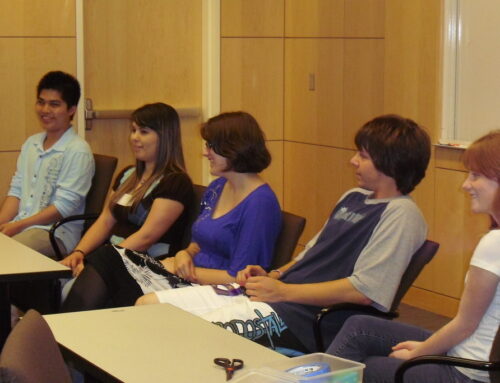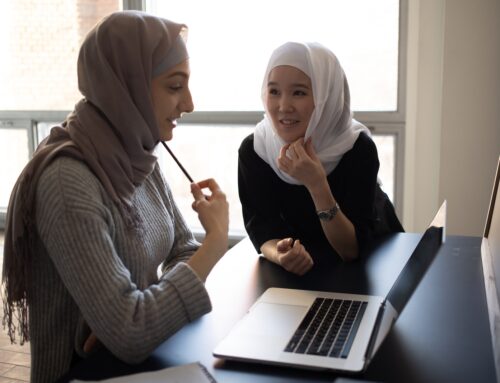Applying for a Student F Visa is an important milestone for many individuals seeking to pursue higher education in the United States. This type of visa grants access to various academic programs at universities, colleges, and other institutions. However, the application process can be daunting and often includes several steps that may be unfamiliar to applicants.
It is crucial to understand the requirements and procedures before embarking on your Student F Visa application journey. Many potential pitfalls could lead to unexpected delays, or even worse, a visa denial. By recognizing and avoiding common mistakes during the application process, you can increase your chances of obtaining that coveted student visa and embark on your academic journey.
Key Takeaways
- Be well-prepared and understand the requirements for a Student F Visa application
- Ensure proper documentation and avoid common pitfalls during the application process
- Prepare thoroughly for the visa interview and address financial requirements confidently

Understanding the Student F Visa
When planning to study in the United States, obtaining a Student F Visa is a crucial step. This visa category, also known as the F-1 Visa, is designed for international students pursuing academic or language training programs in the USA.
To be eligible for the F-1 Visa, you must first be accepted into an accredited educational institution. Upon acceptance, your school will provide you with an I-20 form, which is essential for the visa application process. It’s important to carefully read and follow the instructions on the I-20 form to ensure a smooth application process.
Another critical aspect of obtaining your F-1 Visa is proving your financial ability to support yourself during your stay in the United States. This includes tuition fees, living expenses, and transportation costs. Be prepared to present documentation that clearly demonstrates your financial resources, such as bank statements and scholarship or sponsorship letters.
Additionally, you must maintain a bona fide residence in your home country, and have no intention of abandoning it during your studies in the USA. This means that the F-1 Visa is not a path towards permanent residency. Your main purpose should always be to complete your academic program and return to your home country after its completion.
Lastly, it’s essential to be proficient in English, as most academic programs in the United States require a good command of the language. Some schools may require proof of English proficiency through standardized tests like the TOEFL or IELTS.
By keeping these eligibility requirements and application guidelines in mind, you’ll be better prepared to navigate the F-1 Visa application process and begin your academic journey in the United States. Remember to stay organized and diligent throughout the process, as missing deadlines or providing incomplete documentation can compromise your chances of obtaining the visa.

Avoiding Common Documentation Mistakes
When applying for a student F visa, it’s crucial to pay close attention to detail while preparing your application. One common mistake is submitting the wrong forms. Make sure to use the appropriate form for your specific immigration case. For example, use Form I-130 for petitions for relatives, whereas employers seeking to hire foreign workers require Form I-129. Double-check the forms before submitting to avoid potential issues.
Another important aspect of the application process is staying organized with your required documents. Keep track of deadlines and make sure your paperwork is up-to-date. Additionally, providing incomplete or illegible documents can negatively impact your application. Be thorough and scan each document for errors, such as missing information or incorrect dates.
In order to avoid common mistakes, create a checklist of all the necessary documents to ensure nothing is missing or overlooked. By having a clear understanding of the documentation requirements, you’ll be better prepared and can streamline the visa application process.
Finally, always keep an eye on application deadlines. Missing a deadline can significantly delay your application or even lead to its denial. Plan ahead and ensure you have everything you need well in advance of any due dates.
By carefully organizing your paperwork, double-checking the forms, and meeting all documentation requirements, you’ll significantly improve your chances of having a smooth and successful student F visa application process.

Navigating Application Process Pitfalls
Applying for a student F visa can be a complicated task, but by avoiding common pitfalls, you can successfully navigate the visa process. One crucial step in the application process is ensuring your passport is valid for at least six months beyond your intended period of stay in the United States. Also, it’s essential to follow the application instructions precisely and provide accurate, complete information when filling out the forms.
Working with an immigration attorney can significantly improve your chances of visa approval. They can guide you through the process, ensuring you avoid errors and comply with all necessary guidelines. If you’re unsure about any aspect of the application, consulting a professional can save you time and stress.
When scheduling your interview at the U.S. embassy, remember that appointment availability can fluctuate. Being proactive and scheduling your appointment well in advance helps secure a convenient date and gives you ample time to gather required documentation. Make sure to keep track of your embassy appointment details and follow any guidelines provided by the embassy.
During the application process, you might be required to submit specific forms, like the I-129 or I-102. Make sure you understand the purpose of these forms, their processing times, and any additional fees you may need to pay. Submitting incomplete or incorrect forms can result in delays or even denial of your application.
In conclusion, avoiding common errors and adhering strictly to visa application guidelines can make your student F visa application process more manageable. By being thorough and well-prepared, you increase your chances of successfully obtaining the visa and pursuing your educational goals in the United States.

Preparing for the Visa Interview
One of the most important parts of the F-1 student visa application process is the visa interview. Performing well in the interview is essential for a successful outcome. Adequate preparation is essential to demonstrate to the interviewer that you are a genuine student, have financial means to cover your expenses, and possess clear intentions to return to your home country.
Before attending the visa interview, make sure you have all the necessary documentation organized and ready to present during the interview. Review your Form I-20, passport, and Form DS-160 confirmation page carefully to ensure accuracy and completeness. Familiarize yourself with the USCIS interview process, as it may provide you with essential guidance for success.
Keep in mind that the interviewer may ask questions about your background, education, and career plans, so take the time to rehearse your responses. Practicing your answers will help you feel more confident and focused during the interview. Additionally, try to anticipate any questions that might be specific to your situation, such as regarding your family, work experience, or the school you plan to attend.
During the interview, remain calm, honest, and professional. It is essential to communicate clearly and assertively, as well as listen carefully to the interviewer’s questions. Be sure to address any concerns or doubts the interviewer may have, and provide substantial evidence to support your case. The more prepared and transparent you are, the higher your chances of obtaining the student visa.

Addressing Financial Requirements
When applying for a student F visa, it is essential for you to meet the financial requirements as part of the application process. Adequate financial support is necessary to cover tuition, living expenses, travel, and any other incidental costs.
One of the key documents that you need to submit is your bank statements. These should show sufficient funds in your account or your sponsor’s account to cover your expenses during your stay in the United States. Make sure the bank statements are recent, preferably from the last three months, and clearly show the account holder’s name and accurate balance.
It’s important to provide financial statements as well, which might include pay stubs, tax returns, and employment letters. These documents can further support your claim of having enough financial means for the duration of your course. All financial statements should be translated into English, if necessary, and must have the relevant details like incomes, dates, and the organization for which the account holder works.
To ensure a smooth application process, carefully review the specific financial requirements of your chosen university and the visa application guidelines. Fulfilling these requirements will significantly increase your chances of obtaining a student F visa and embarking on your educational journey in the United States.
Frequently Asked Questions
What are the top reasons for F1 visa rejection?
Some common reasons for F1 visa rejection include lack of financial support, insufficient ties to your home country, or mistakenly applying for the wrong type of visa. It is important to check all the required documentation carefully and showcase your ties to your home country, financial stability, and genuine intent to return after your studies.
How do I ensure accuracy in my visa application?
To ensure accuracy in your F1 visa application, make sure to double-check and proofread all the information you provide. Follow the guidelines and tips provided for a successful application. If needed, consult an experienced immigration attorney or expert for assistance.
Does marital status affect my F1 visa application?
Your marital status should not have a direct impact on your F1 visa application. However, if your spouse or dependents plan to accompany you, they will need to apply for an F2 visa. Be prepared to demonstrate your ability to support your family financially during your stay in the United States.
Can mistakes in my application lead to visa denial?
Yes, mistakes in your application can cause delays or even rejection. It is crucial to provide accurate and complete information while filling out your application to avoid any issues. Always proofread and ensure that you submit all the necessary documents.
How does my financial situation impact my F1 visa chances?
Your financial situation plays a crucial role in your F1 visa approval. You need to demonstrate your ability to cover academic and living expenses in the United States. Failing to do so could result in visa denial. Gather all relevant financial documentation such as bank statements, sponsorship letters, scholarships, or loan approvals to showcase your financial stability.
Are certain countries more likely to face F1 visa denial?
Visa denial rates vary between different countries, but nationality itself should not be a determining factor for visa approval. However, the overall approval rates for employment-based visas may show certain trends based on the economic and political relationships between countries. Focus on fulfilling all the requirements, and be prepared to demonstrate your genuine intention to study and return to your home country after completing your education.




